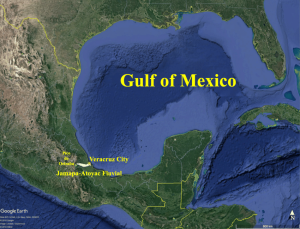U.S. Transfers 13 Mexican Drug Offenders Back to Mexico, Saving $3 Million in Prison Costs.
Thirteen inmates convicted of drug trafficking in the U.S. are now back in Mexico, where they'll serve the rest of their prison time. The transfer, carried out Friday, marks another step in a long-running agreement between the two countries that quietly saves American taxpayers a hefty sum.
These prisoners, all Mexican nationals, had been locked up in federal prisons across the U.S. for distributing illegal drugs like cocaine, meth, and fentanyl. With years still left on their sentences, 75 in total, they asked to be sent home. Both governments signed off.
“Friday’s transfer of 13 federal inmates to correctional authorities in Mexico has saved the United States over $3 million by eliminating the need to pay incarceration costs for the 75 years remaining on their combined sentences.” said Matthew R. Galeotti, who leads the Justice Department’s Criminal Division.
“The Justice Department’s International Prisoner Transfer Program, which is administered by the Criminal Division’s Office of International Affairs, enhances offender rehabilitation, reduces incarceration costs, and relieves overcrowding in federal prisons. The transfer is pursuant to the Treaty between the United States of America and the United Mexican States on the Execution of the Penal Sentences.”
The move falls under a long-standing treaty between the U.S. and Mexico that allows inmates to finish their time in their country of citizenship. It’s part of the International Prisoner Transfer Program, a little-known initiative that has been quietly operating for nearly five decades.
The idea is simple. If both countries agree and the inmate wants it, they can serve their sentence closer to home. It’s not automatic. Every case is reviewed. Every transfer has to be approved on both sides.
This latest group brings the total number of such transfers with Mexico to 184 since the program officially got underway back in the late 1970s. The last time it happened was in December, when nine inmates were returned.
For those behind bars, being closer to family and a familiar culture can make a real difference in rehabilitation. For the U.S., it’s a practical win. Fewer inmates means less strain on the system and millions in savings.
U.S.-Mexico Prison Transfer Treaty Supports Justice Reform and International Cooperation
The U.S.-Mexico prisoner transfer treaty is one of several international agreements designed to promote justice reform and humane incarceration policies.
These treaties allow for cooperation on law enforcement, extradition, and the management of cross-border criminal cases. For foreign nationals serving time in U.S. prisons, the transfer program offers a chance to reintegrate into society under their own country’s correctional system.
Programs like these also highlight broader efforts to address the impact of international drug trafficking. With fentanyl and methamphetamine continuing to drive public health crises across North America, law enforcement agencies on both sides of the border are working together to dismantle distribution networks and strengthen legal frameworks.
To learn more about the Department of Justice’s International Prisoner Transfer Program and its treaty relationships with more than 85 countries, visit:
justice.gov/criminal/criminal-oia/iptu
More Articles from Lawyer Monthly
-
Terry Baralt Menendez Courtroom Photos: Hospitalized After Hearing
-
Texas Bans Vape Ads Near Schools to Fight Youth E-Cigarette Use
-
Ballerina Ksenia Karelina Freed After Over a Year in Russian Detention





















